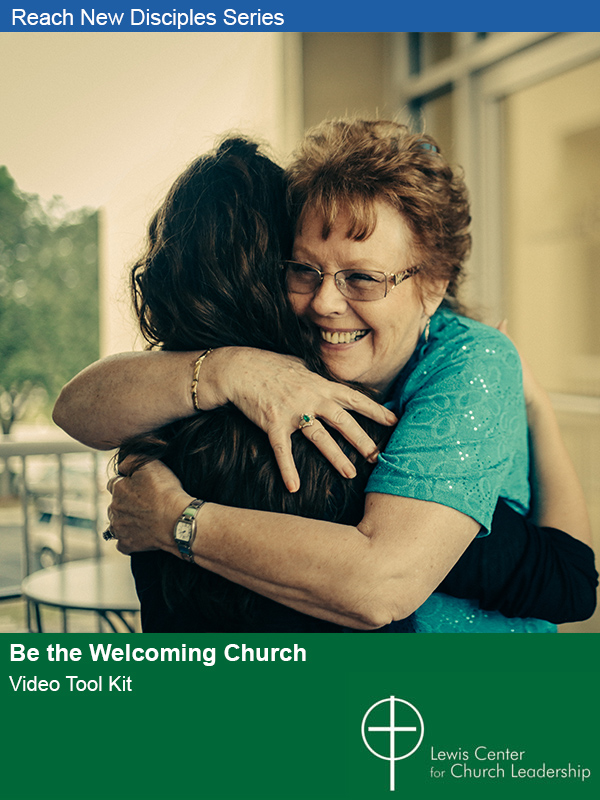How can you deepen your relationship with the children and families participating in a Vacation Bible School and stay connected with them throughout the year? Lewis Center Director Doug Powe outlines strategies to make your Vacation Bible School a meaningful and effective evangelism opportunity.
This article by F. Douglas Powe Jr. was originally published on June 13, 2018. We are pleased to share these practical strategies again.
Many churches conduct Vacation Bible School during the summer, engaging neighborhood children and families as participants. But how do you stay connected with those families throughout the year? Too many churches develop a pattern of connecting with their neighborhood once or twice a year, but then return to business as usual the rest of the time.
Vacation Bible School is an evangelism opportunity for all congregations. Here are seven ideas that congregations can try to aid in their evangelistic effort.
1. Remember those who came last year
As you prepare for your Vacation Bible School, take a look at who attended last year and refamiliarize yourself with their names. Greeting returning families by name will make a real impression on them, communicating your genuine interest. The refrain of the theme song from the hit sitcom Cheers got it right: People do want to go “where everybody knows their name.” One way to help keep track of names from year to year is to attach names to the photos you take of VBS — after getting proper permission for photographing the children, off course.
2. Make new people feel welcome
This seems obvious, but it bears stating explicitly. It is important not only to greet the new people warmly, but also to help them connect with those who are part of the church and past participants. Finding activities that allow new and returning people to get to know one another in fun ways can overcome our natural tendency to feel most comfortable talking with those we already know. All of us are more likely to return to a place where we feel we belong. In many cases, the feeling of belonging will have more lasting impact on people than the actual curriculum taught.
3. Get the parents involved
Sometimes we focus so much on the children that we forget to be invitational to the parents. This does not mean signing them up to be one of the main teachers or support staff for Vacation Bible School. It can be something as simple as inviting parents to eat with a group of children and hear what they learned that day or having them help with crafts or other short-term projects. Some parents will be curious about what their child is doing, and this is a way for them to eavesdrop without feeling like an intruder. It is also an opportunity for congregation members to build relationships with the parents. Not every parent will want to get involved, but some will appreciate being asked to participate.
4. Let the Bible speak for itself
Many of us don’t like the word “evangelism” because we don’t want to be perceived as pushing our beliefs on others or we aren’t comfortable talking about our relationship with God. But since Vacation Bible School is organized around a Bible story, it doesn’t feel like one is having to force one’s beliefs on others. Talking with children or adults about God is done within the context of the organized activities. This is the opportunity to listen for how those not as familiar with a Bible story hear it and an opportunity to walk alongside them and answer any queries about the story or a relationship with God. It is easier to share the gospel when it does not feel contrived.
5. Celebrate VBS in Sunday worship
At the end of VBS, plan a special recognition of participants and leaders during your Sunday worship service. Planning worship around the scriptural theme of the VBS or having the children play a special part in the worship service will help the congregation appreciate what happens during the week and give VBS families from the neighborhood a reason to attend church on Sunday.
6. Invite participants to the next event — again and again
One reason we get into a rhythm of seeing some neighborhood families only once or twice a year is that it’s the only time we invite them to something. Before Vacation Bible School even starts, you should be thinking of other opportunities to extend invitations to VBS families, whether it’s Sunday School kickoff, a back-to-school event, an end-of-summer block party, or parenting classes. Then, develop an intentional strategy to extend multiple invitations to your VBS families. Focus on deepening relationships with families that attend events, greeting them by name, making them feel welcome, and integrating them into the activity of the day.
7. Send birthday greetings throughout the year
Ask someone in the church, perhaps an elderly member, to review the VBS registration forms and make a list of the children’s names, addresses, and birthdates, and then send out birthday cards over the course of the coming year. It’s a simple way of letting the children and their families know the church continues to care about them and hopes to stay in relationships.
With some good preplanning, Vacation Bible School can be more than a once or twice a year neighborhood outreach. It can be a meaningful evangelistic opportunity that connects your church with new and younger people.
 Related Resources
Related Resources
- Engaging Local Schools, a Lewis Center video tool kit resource
- The New Church Family by Ann A. Michel
- 50 Ways to Strengthen Ministry with Children, a free Lewis Center resource







